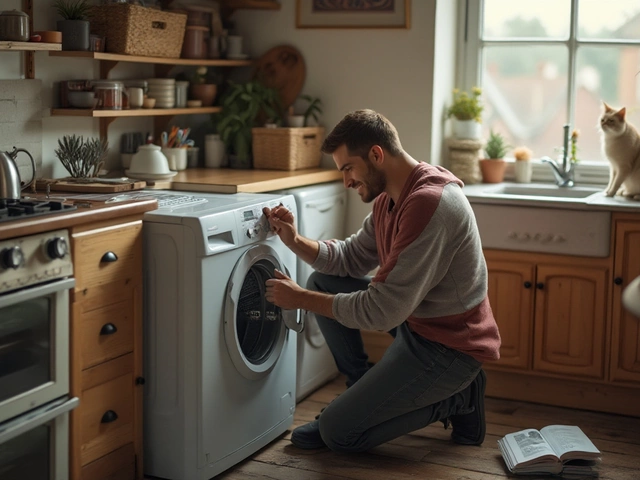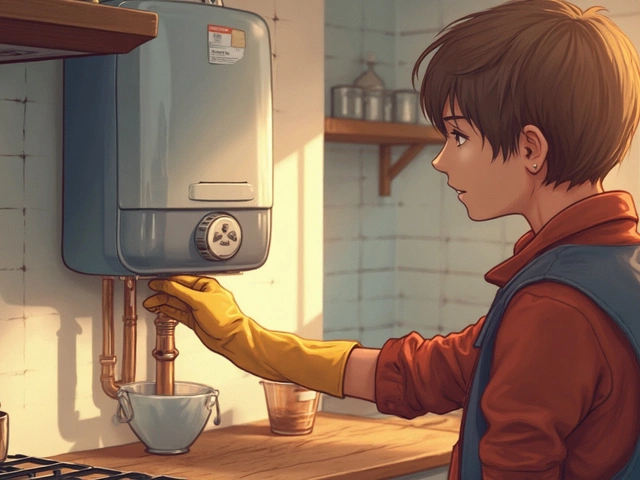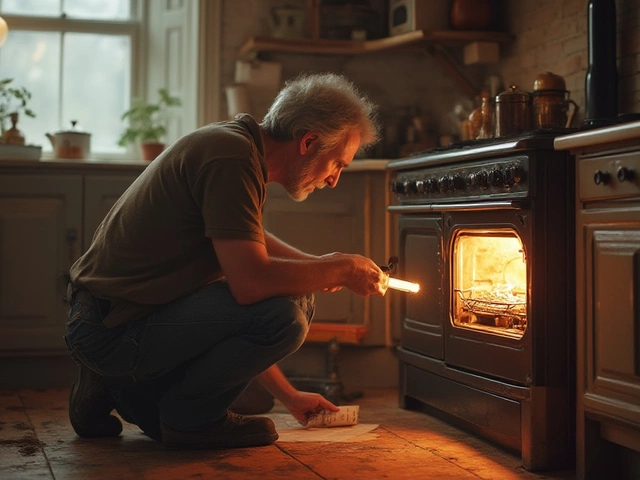Got a noisy washing machine, a cold oven, or a dishwasher that just won’t start? Before you spend a fortune on a brand‑new unit, ask yourself if the fix is cheaper and smarter. Below you’ll find the practical questions and real‑world examples that help you decide whether to call a pro, roll up your sleeves, or start shopping for a replacement.
First, look at the age of the appliance. Most modern washers and dryers last about 10‑12 years, while ovens and hobs can push 15 years if maintained. If your machine is well under that range, a repair is usually worth the money.
Next, check the symptoms. A broken cooker element, for example, often costs under £80 to replace (see our "Replace Oven Element" guide). If the problem is a single faulty part—like a busted hob element or a busted extractor fan motor—you can expect a quick fix and a low bill.
Energy efficiency matters, too. An old fridge that’s still running but draws a lot of power may cost more in electricity than a new, A‑rated model. Use a simple check: if the appliance’s energy label is more than three stars old, factor higher running costs into your decision.
Finally, consider safety. Leaking water heaters, overheating boilers, or a heat pump that won’t blow warm air can become hazards. When safety is at risk, replace is often the safest route.
Cost is the biggest driver. A common rule of thumb is the "50 % rule" – if a repair quote is more than half the price of a comparable new unit, it’s probably smarter to replace. Our dishwasher repair guide shows that fixing a 4‑year‑old dishwasher can run close to £200, while a fresh model may be just a little more expensive and comes with a warranty.
Recurring problems are another red flag. If you’ve had to call a technician three times in a year for the same washing machine, the underlying issue is likely deeper than a simple belt or pump failure.
Technology upgrades also tip the scales. New heat pumps, for instance, are far more efficient than older models. If your heat pump isn’t blowing warm air and is over 10 years old, the energy savings from a new unit can quickly offset the upfront cost.
When you decide to replace, look for energy‑efficient models, check user reviews, and consider the warranty length. A good warranty can save you money if something goes wrong in the first few years.
In short, weigh age, part cost, energy use, safety, and how often the problem recurs. If the fix is cheap, quick and the appliance isn’t getting old, repair it. If the bill approaches half the price of a new unit, the appliance is ancient, or safety is a concern, start shopping for a replacement. And when in doubt, get a professional opinion – a quick diagnostic call can save you hours of guesswork.

Is your 10 year old dryer gasping for air, and you’re wondering if it’s time to fix or toss it? This article breaks down how long dryers usually last, what typical repair costs look like, and when it just makes more sense to get a new one. You’ll find smart tips to figure out if fixing an older dryer is throwing good money after bad or saving yourself from an expensive upgrade. Get real-life advice that skips the fluff and gets to the point.

Repairing a washing machine yourself can save time and money, and it's not as difficult as one might think. This article covers the basic steps for diagnosing common issues, tools required for repairs, and safety tips to consider. Whether it's a noisy drum or a leaking gasket, we guide you through essential troubleshooting techniques. Learn how to tackle minor fixes and decide when to seek professional help.

Microwave ovens, essential kitchen appliances for many households, can sometimes fail to operate smoothly. This article dives into the intricacies of microwave repair, exploring common issues, troubleshooting methods, and practical repair tips. Designed for both amateur DIY enthusiasts and curious individuals, the guide offers insights into understanding microwave components and determining when professional help is necessary. Learn the skills needed to fix minor problems and tips to maintain the efficiency of your microwave.

Navigating the cost of a new boiler can be confusing. This guide dives into typical pricing, key considerations for your budget, and how to make the best decision for your home. We'll explore average costs, the impact of brands and models, and provide tips for saving money. Get the information you need to keep your home warm without breaking the bank.

Resetting a water heater might seem simple, but it involves precaution. This article delves into when and why a reset might be necessary and explores the safety considerations involved. Learn about common signs that indicate a reset is due and the correct way to carry out this task. Discover the underlying causes of water heater issues to prevent future resets.

Got a cold oven? Learn if you can swap that faulty heating element yourself, what tools you'll need, and exactly what to watch out for. Easy fixes, with real-life tips.